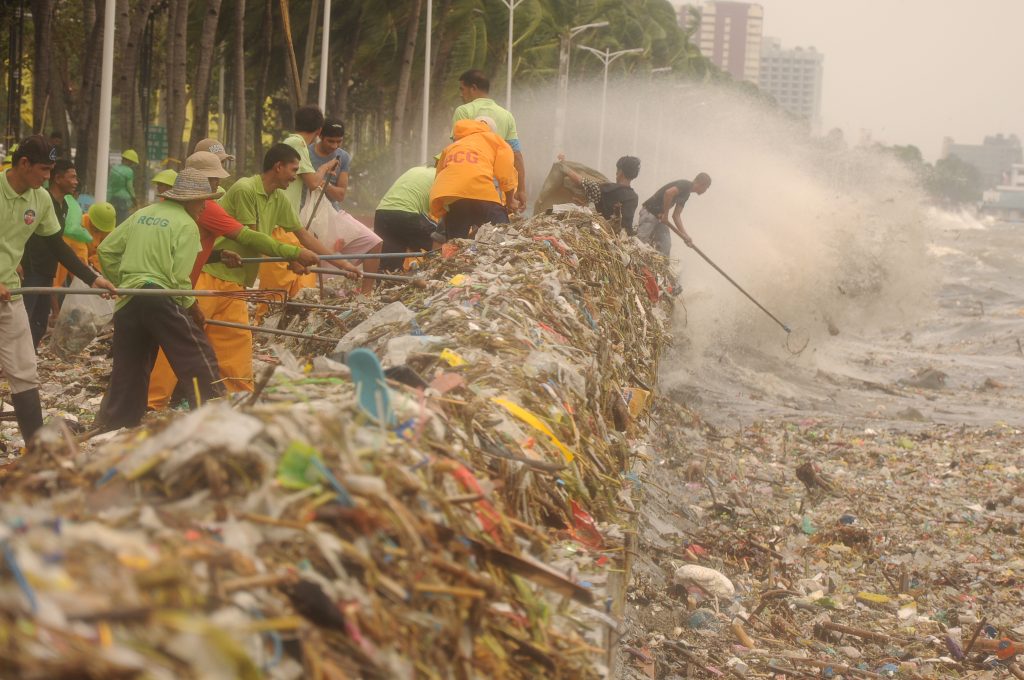
ASEAN joins movement to beat plastic pollution
JAKARTA, 2 July 2018 -ASEAN- led by the ASEAN Centre for Biodiversity (ACB) - observed the World Environment Day on 5 June 2018, and joined the movement to reduce plastic wastes for environment in the region.
When interviewed, the ACB Executive Director Dr. Theresa Mundita S. Lim, cited "The home of ACB, Los Banos, Laguna, is the first ever municipality in the Philippines that regulated the use of plastic bags through Municipal Ordinance No. 2008-752. Now, the town also prohibits the use of plastic straws, plastic cups, and plates through Municipal Ordinance No. 2014-1316, The Expanded Plastic Ordinance of the Municipality of Los Banos. These conservation efforts are being replicated by other towns and cities in the country,"
"The centre joins the movement against the use of plastics, and supports the Member States initiatives in banning plastic use, and strictly implementing waste management laws and policies," she added.
Reducing plastic wastes in the ASEAN region
Continued efforts are exercised in ASEAN Member States to fight plastic pollution. Brunei Darussalam aims to stop the use of plastic bags in supermarkets by 2019, and shoppers are encouraged to use reusable eco-friendly bags for grocery shopping. Major supermarkets which joined the Beat Plastic Pollution initiative are considering it to be part of their Corporate Social Responsibility (CSR).
In Cambodia, major supermarkets charge KHR 400 (10 US cents) per plastic bag to reduce its wasteful use. Lao PDR also encourages the public to use recyclable bags which are being sold in downtown cafes and markets. Indonesia, Malaysia, and Myanmar, also ban and/or impose taxes on the use of plastic bags.
The Philippine government through the Department of Environment and Natural Resources (DENR) urged the general public to avoid using disposable plastic products that clog waterways, cause ocean pollution, and poison marine species. "Plastic, particularly those for single-use packaging, has greatly contributed to the degradation of the environment. "Plastic pollution continues to poison our oceans and injure marine life. When not properly disposed, they clog waterways and cause flooding," said DENR Secretary Roy Cimatu. Public markets and large supermarkets in some cities and municipalities practice the "Bring Your Own Bag (BYOB)' - a campaign aimed to encourage consumers to bring reusable bags when shopping.
Singapore, one of the world's giant players in the fast food chain industry banned plastics (i.e., plastic lids and straws) for dine-in customers on 20 June 2018.
A line of mini-marts and convenience stores in Thailand with 11,000 operating stores implements the "Say No to Plastic Bag" campaign to uphold policies in line with the international environmental standards. Thailand government's national agenda primarily aims to promote the importance of reducing the number of plastic bags to lessen the harmful effects to our environment.
Large businesses and enterprises in Viet Nam also introduced eco-friendly bags for shoppers, and the government imposes environment tax on plastic bags, which is VND 40,000 (US$ 1.76) per kilogram.
"If you can't reuse it, refuse it."
"If you can't reuse it, refuse it" is the global call to stop using "single-use" plastic materials as this year's World Environment Day was celebrated with the theme, "Beat Plastic Pollution". While plastic provides significant number of uses in our daily lives, it poses greater threats to biodiversity and environment.
Every year, the world produces around five trillion plastic bags - that is more or less 700 bags per person. These bags, which are usually utilized in just a few minutes or hours, take centuries to decompose. Before being decomposed, these wastes pile up in lands and easily washed up into streams, and rivers until they reach the oceans; polluting waters, destroying aquatic habitats, and eventually kill marine species.
The problems caused by the proliferation of plastic wastes include: clogging of waterways causing serious flooding and landslides; health problems due to the ingestion of harmful chemicals like benzene and styrene; loss of marine biodiversity caused by water pollution; air pollution by burning plastic wastes; and economic damage to marine ecosystems, to name a few.
#####






